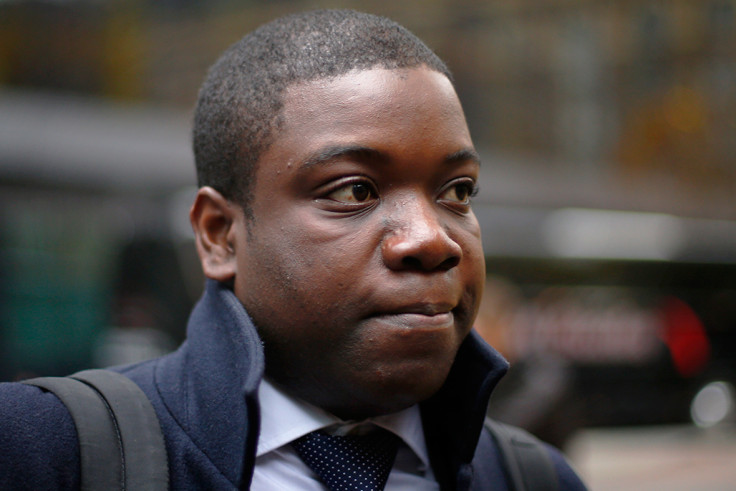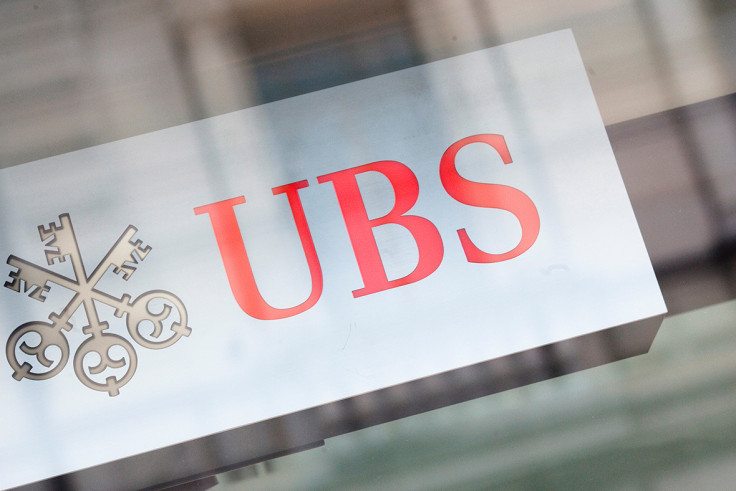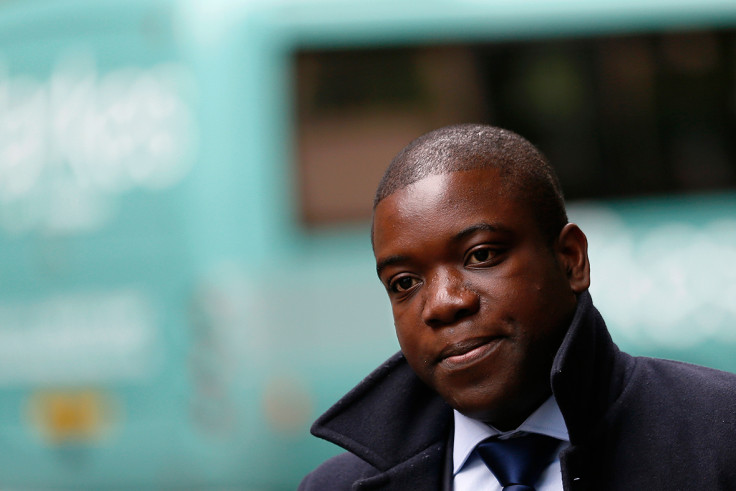Profits at any cost – UK's biggest rogue trader reveals dark arts of banking
Former UBS trader Kweku Adoboli says there are still huge pressures on young traders to take dangerous risks.

Britain's biggest rogue trader Kweku Adoboli told IBTimes UK a typical example of the culture he worked in at Swiss bank UBS was when one of his bosses took him aside and said: "Push the boundaries until you get a slap on the back of the wrist."
Adoboli, 36, says that conversation happened in the spring of 2011 – by September the global synthetic equities trader had lost £1.4bn ($1.9bn) as the markets moved against him. This was the biggest single loss by any trader in the UK.
He was found guilty of two counts of fraud in 2012 at Southwark Crown Court and sentenced to seven years in prison.
The bank said at the time that more than 500 jobs were lost and the bonus pool in its investment bank was slashed by about 60%, partly because of the loss. About 10 people lost their jobs who were directly related to the fraud.
He was released from Maidstone Prison last year after serving almost half of his sentence.
Ghanaian-born Adoboli says: "Young traders face difficult choices to achieve profits at any cost. That is still the case today. A trading floor is full of conflict. Conflict with the markets, conflict with your clients, conflict with your colleagues and with you bosses. I talk to young traders and they tell me those pressures are still there."
After Adoboli left prison, he was subject to Home Office policy which looks to deport any foreign national prisoners who have been sentenced to more than four years. He is appealing an order that he should be deported back to Ghana. To fund his appeal he is trying to raise £75,000 through a crowdfunding campaign on FundRazr.
Under the terms of his deportation order he cannot work, and lives with friends near Edinburgh and speaks for free at banking compliance conferences. His father, a retired UN peacekeeper sends him cash from Ghana to help with bills.
"My father wants me to come home and rebuild my life," says Adoboli. "But I tell him I want to stay here and fight to make something positive here.
"My friends and family are here. And the compliance work I do with traders means we have to look each other in the eye when we share stories. You cannot do this sort of work on emails and Skype calls from Ghana. I am offering myself as lightening rod to help grow and change the industry."
He spends his days babysitting his friend's two small children, preparing for his appeal, and running around 60km a week to get a shape for a couple of marathons he hopes to run in the autumn. "Running helps keep me mentally strong," Adoboli says.

His current circumstances could not be further from the gilded start to his life.
After leaving Ghana as a child he travelled with his family to his father's postings to Jerusalem and Damascus. At 12 he was sent to the prestigious Ackworth Quaker public school in Yorkshire, where he became head boy.
He completed a degree in computer science and management at Nottingham University in 2003, while he also worked as a summer intern for UBS.
Even as an intern he says he was "a bloody hard worker", working 12 to 15 hours a week, and often taking work home with him. The work paid off and he joined the bank in 2003 as a trainee.
He was promoted several times moving from an analyst to a trader living in a spacious flat in Whitechapel on a £110,000 salary and a £250,000 bonus in 2010. He was a senior member of a group of four traders who traded from a book worth £50bn.
He had also become a poster boy for the bank, which used him on recruitment drives at campus universities. But it was not long before things started to go wrong.
Markets were veering wildly as turmoil of the eurozone crisis played out throughout 2011. Starting in the spring he used the bank's money to make big bets on the market going one way or the other, but found that every time he zigged, the market zagged.
He failed to hedge these transactions, which means to make similar sized bets in the opposite direction. This was a ploy to maximise profits, but exposes the bank to greater risk.
I still think a lot about UBS. My feeling is one of sadness. It's a bit like when a relationship ends, and you are still in love with that person.
Adoboli also set up a slush fund he could use to hide any profits he made on his unauthorised trades. During the last six months he redoubled his efforts to make back his losses that at one point spiralled to over £2bn.
Over that period he says he was getting around four hours sleep a night. In a typical day he would be at his desk at UBS at seven in the morning and work until seven in the evening.
He would then have dinner with his girlfriend or drinks with colleagues, then go home to trade from his Bloomberg screen at the close of the US market at around 11pm. He would then rest to be ready to trade at the close of the Japanese market at just past midnight, slumber again before making bets on the Chinese market at 3am. He would wake at around 4am to make notes and reports to clients before getting ready to be at the office for 7am. He gained three stone during that period.
"You go into a grey zone to make yourself get yourself through it. But I got burnt out by the end. I lost the ability to make a rational decision."
He remembers that in the days before his trades were picked up by the bank's compliance unit he went to Sainsbury's to buy dinner for him and his girlfriend. He says he wandered around for what seemed like hours with a basket before leaving empty-handed, because he couldn't decide what to buy.
After probes by the bank's compliance team, he sent an email from home confessing what he had done.
During his time in prison his four-year relationship with his girlfriend broke down, and the Home Office told him of their intention to deport him on his release.
Adoboli has now joined a list of mid-level bankers who have been sent to jail for rouge trading, which includes former UBS and Citigroup yen derivatives trader Tom Hayes sentenced to 14 years in 2015 for trying to rig the Libor interbank rate market, and Jérôme Kerviel blamed for losing Société Générale £3.7bn six years ago.
He says: "I have got this tag as a rogue trader. I have to turn it into something positive. But it's a label that hurts – let's be honest."

And Adoboli adds that because of the pressures young bank staff are under rogue trades "can absolutely happen again."
Many critics point out that mid-level traders end up jail. However, bank bosses in the US or Fred Goodwin in the UK, who almost crashed the Royal Bank of Scotland, lost his knighthood and part of his pension, but escaped prison.
Adoboli says: "Junior guys have their name on every trade. The more senior you are the more you can distance yourself from trading. But it is right that people up and down a bank need to be held to account for their actions."
However, it is clear that Adoboli is still struggling to come to terms with the bank he worked at for eight years and his crime. He says: "I still think a lot about UBS. My feeling is one of sadness. It's a bit like when a relationship ends, and you are still in love with that person."
UBS would not comment on his case.
And on his conviction, he added: "I understand that I was found guilty of a crime. Dishonesty was central to that. But if a good person make a terrible mistake, does that mean I am a criminal?"
The courts have given their view on that, and Adoboli is now fighting the Home Office who share the same position.
© Copyright IBTimes 2025. All rights reserved.






















